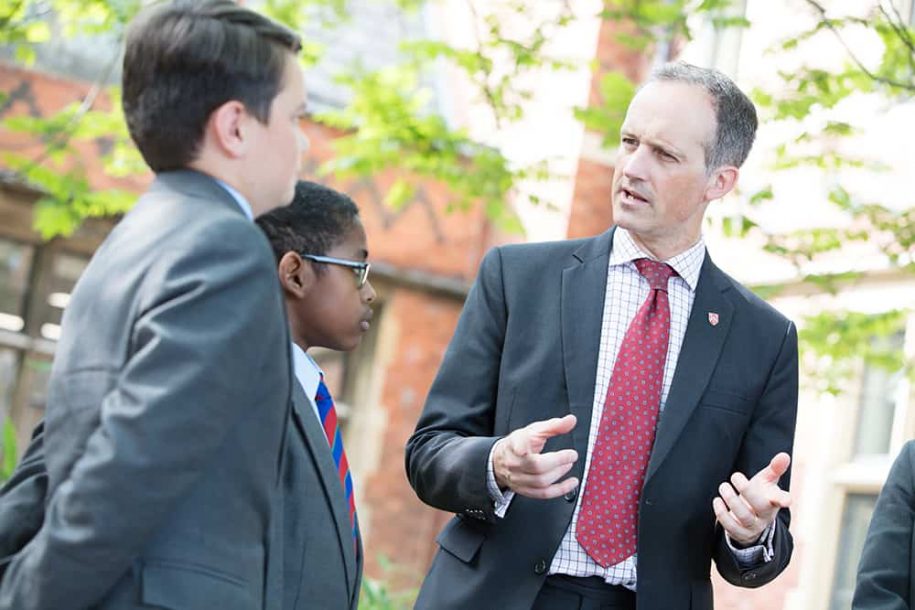What is intelligence?

Last week, Justine Greening, the ex-Education Secretary recently sacked by Theresa May, made a speech much covered in the press where she argued for ‘contextual recruitment’ from employers. This means that employers should look at the schools attended by job applicants alongside their grades before making employment decisions. In short, she argued that a young person with three grade Bs from an independent school would be less impressive than one with the same grades from a low-achieving school. Although any attempt to belittle our boys’ achievements saddens me, the press coverage actually made me focus on how misguided it is that a young person’s worth is measured solely by exam results that reflect only a very narrow definition of intelligence.
Fifty years ago, it was generally believed that intelligence was a single entity that was largely inherited, and that it could be measured objectively by an IQ test. Over the last 30 years or so, this idea has been challenged by psychologists such as Howard Gardner, Professor of Cognition and Education at Harvard University. Gardner is extremely well-known in educational circles for his theory that there exist ‘multiple intelligences’, quite independent of one another, and that each form of intelligence has its own strengths and constraints.
So what are these different forms of intelligence? Gardner initially defined seven. The first two correspond to views of intelligence valued by traditional education; they are Verbal-linguistic (facility with words and languages) and Logical-mathematical (number, logic, abstract reasoning and critical thinking). A typical IQ test will test both sides, but teachers know that many pupils are much stronger on one side than the other so there is no obvious correlation between the two.
The next three intelligences are associated with what we often consider to be the co-curricular: Musical-rhythmic, which is self-explanatory, Visual-spatial and Bodily-kinaesthetic. We like to talk about sporting, musical or artistic ‘ability’ and Gardner argues that we must consider these as forms of intelligence. Some people start with high levels of natural ability in these areas, but just as with traditional intelligences, they too can be enhanced through purposeful practice. Wayne Rooney may not be ‘intelligent’ according to the narrow linguistic-mathematical definition, but football fans would agree that he has something that makes him distinctive. Gardner would say that he excels in these other forms of intelligence. He clearly has the spatial intelligence to visualise a telling pass and the kinaesthetic intelligence to execute it.
Gardner’s final two categories are interpersonal and intrapersonal intelligences. I am increasingly worried that these seem to be underrated by formal education, whilst being highly valued in the world of work. Interpersonal (or ‘emotional’) intelligence is concerned with the capacity to understand the intentions, motivations and desires of others, and therefore enables effective collaboration at work or at play. We all have known highly qualified people who find it difficult to work in teams and to explain their thoughts. This limits their effectiveness in the workplace. It is particularly important that LGS spend time helping boys to develop in this area, as strong emotional intelligence will allow them to be sensitive and understanding partners and fathers in due course.
Intrapersonal intelligence is the capacity to understand and to manage oneself, and to appreciate one’s feelings and motivations. I might term it ‘understanding how to get the best out of ourselves’. This is the business partially of the PSHE curriculum in schools, but it’s also developed by the conversations that we, whether teachers or parents, have with boys on an ongoing basis to help them to become independent and self-regulate.
These different forms of intelligence develop at different rates, so, despite my insistence on the importance of a broad-based intelligence, you must not be worried about areas in which your son is currently lagging behind. Many of us have teenage sons, who despite achieving strong academic results at school, appear incapable of clearing the dining table without spilling water or dropping crockery on the floor. Their spatial intelligence is lacking at this point in their development!
Instinctively as a teacher, I can recognise how boys with particularly well developed skills in one of these ‘alternative’ intelligences will succeed in life. There are some who show the ability to get on with everyone. This so-called ‘soft’ skill is highly marketable and certainly not to be under-estimated. This is also why we set so much store by the co-curricular in an LGS education. Sports, drama, activities and clubs help to develop these alternative intelligences alongside the linguistic/logical-mathematic of the traditional academic curriculum. Independent schools like LGS are lucky to have resources that allow us to develop the whole-person. Perhaps that is the reason why our pupils seem to be more employable. Rather than the Government seeking to discriminate on the basis of school, perhaps a more fruitful approach would be for the broader education system to think more holistically about the goals it has for its pupils?
